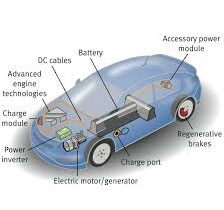Electric car charging rates can vary significantly based on several factors, including the type of charging station, location, and time of day. Generally, there are three main types of chargers: Level 1, Level 2, and DC fast chargers. Level 1 chargers are typically standard home outlets and offer the slowest charging speeds, making them ideal for overnight charging. Level 2 chargers are faster and commonly found in public charging stations, while DC fast chargers provide rapid charging, perfect for long trips. Costs can range from free at some public stations to several dollars per hour, with variations based on demand and peak pricing. Understanding these rates can help electric vehicle owners optimize their charging habits and manage their overall expenses effectively.

Electric car charging rates are a crucial aspect for both current and prospective electric vehicle (EV) owners, as they significantly influence the overall cost of owning and operating an electric car. These rates can vary widely based on several factors, including the type of charging infrastructure used, geographical location, and the time of day. Understanding these dynamics is essential for making informed decisions about charging habits and managing expenses effectively. There are three primary types of charging stations: Level 1, Level 2, and DC fast chargers. Level 1 chargers typically use a standard 120-volt outlet and are most commonly found in residential settings. They offer the slowest charging speeds, usually providing about 4 to 5 miles of range per hour of charging.
Understanding electric car charging rates also involves considering the overall cost of electricity in one’s area. Different states and regions have varying energy prices, which can impact the total cost of charging an electric vehicle. In some areas, renewable energy sources such as solar or wind may contribute to lower rates, aligning with the environmentally friendly mission of driving electric. Furthermore, many EV owners can take advantage of home solar panels, allowing them to charge their vehicles with clean energy and potentially reducing their overall electricity costs even further. For those who rely on home charging, installing a Level 2 charging station can be an effective way to optimize charging times and costs.
While the initial investment may be higher than a standard outlet, the savings on electricity rates and the convenience of faster charging can make it worthwhile in the long run. In summary, electric car charging rates are influenced by several interconnected factors, including the type of charging station, geographical location, time-of-use rates, and the overall cost of electricity. By understanding these elements, electric vehicle owners can make more informed decisions about their charging habits, helping them optimize costs and enhance their driving experience.
As the electric vehicle market continues to grow and charging infrastructure evolves, staying informed about electric car charging rates will be increasingly important for maximizing the benefits of owning an EV. As a result, EV owners should remain proactive in monitoring their local charging options, taking advantage of promotional rates, and considering energy-efficient charging solutions to make the most of their electric vehicle experience.


















Copper-Nickel Pipes in Iraq Elite Pipe Factory provides copper-nickel pipes that are known for their excellent corrosion resistance and durability, making them ideal for marine and industrial applications. These pipes are crafted with precision to meet the high demands of various industries. As one of the most trusted and reliable manufacturers in Iraq, Elite Pipe Factory ensures that our copper-nickel pipes deliver superior performance and longevity. For more details, visit elitepipeiraq.com.
rüyada ilahi sesi duymak diyanet